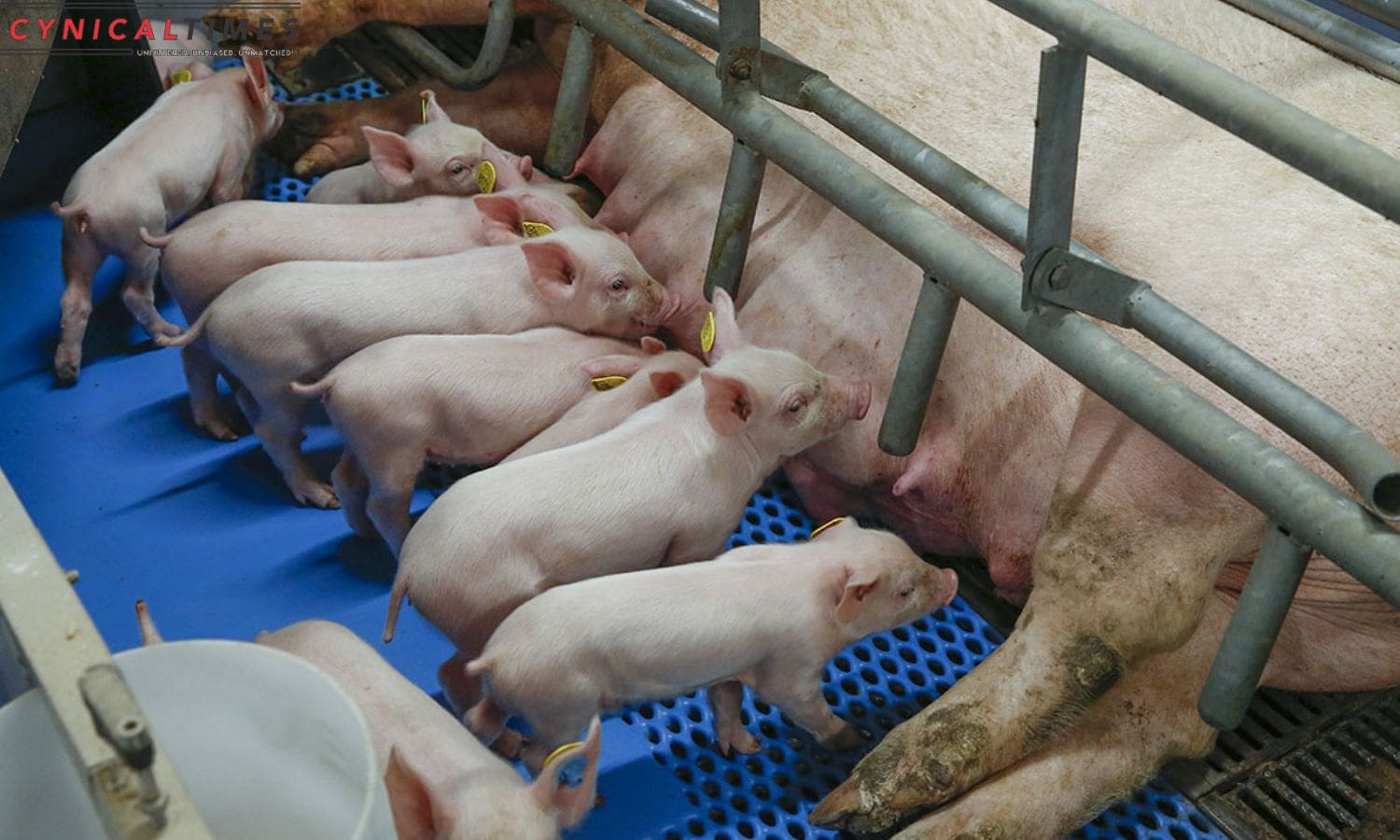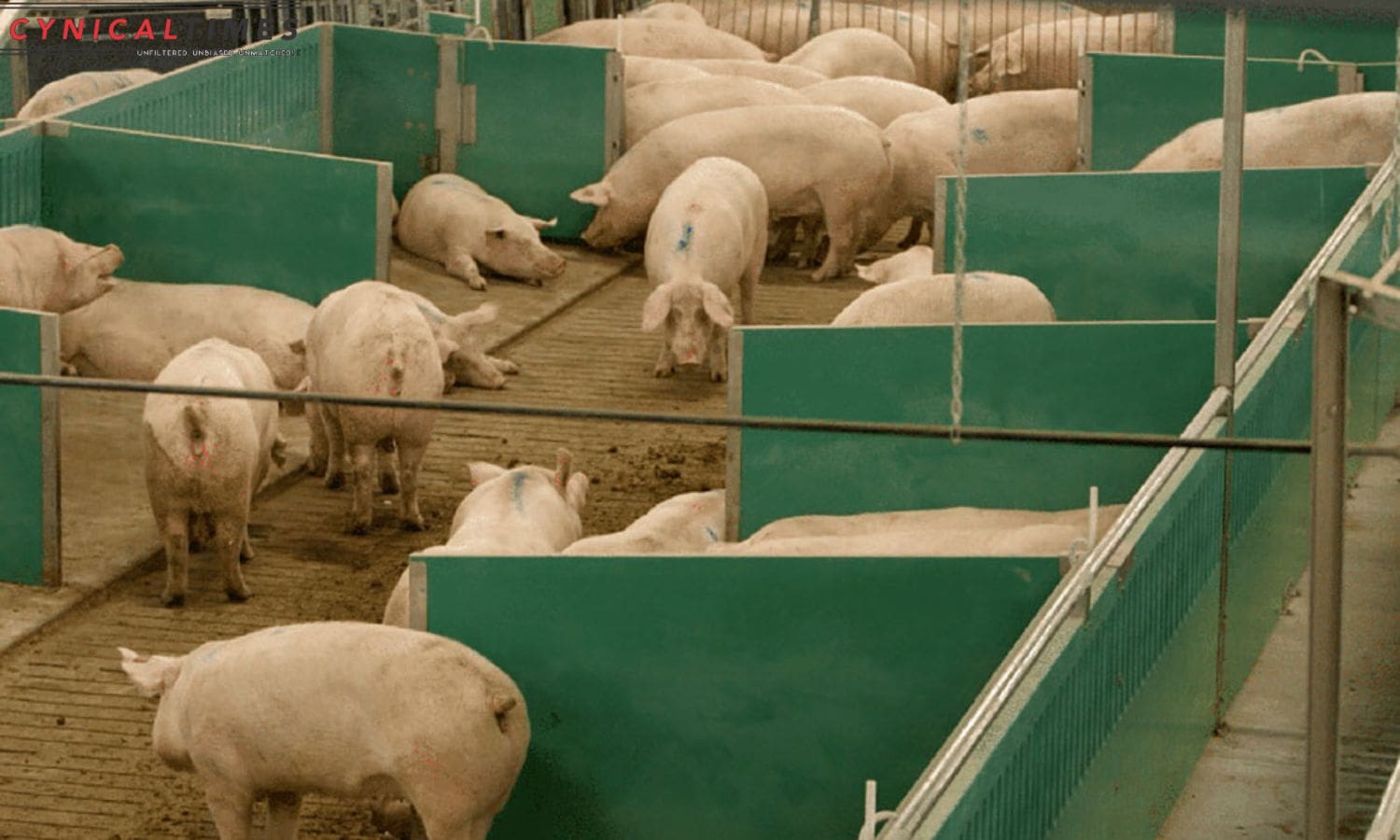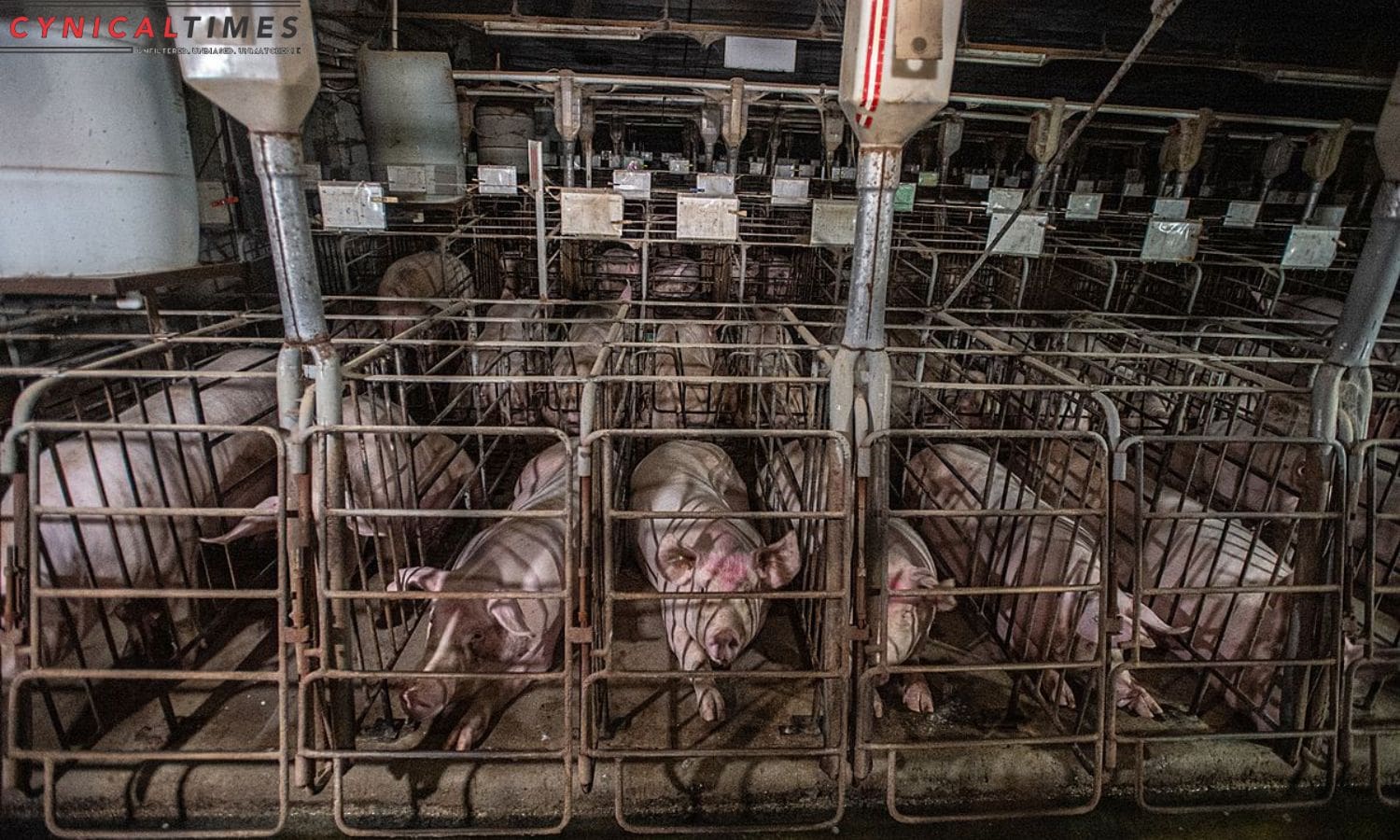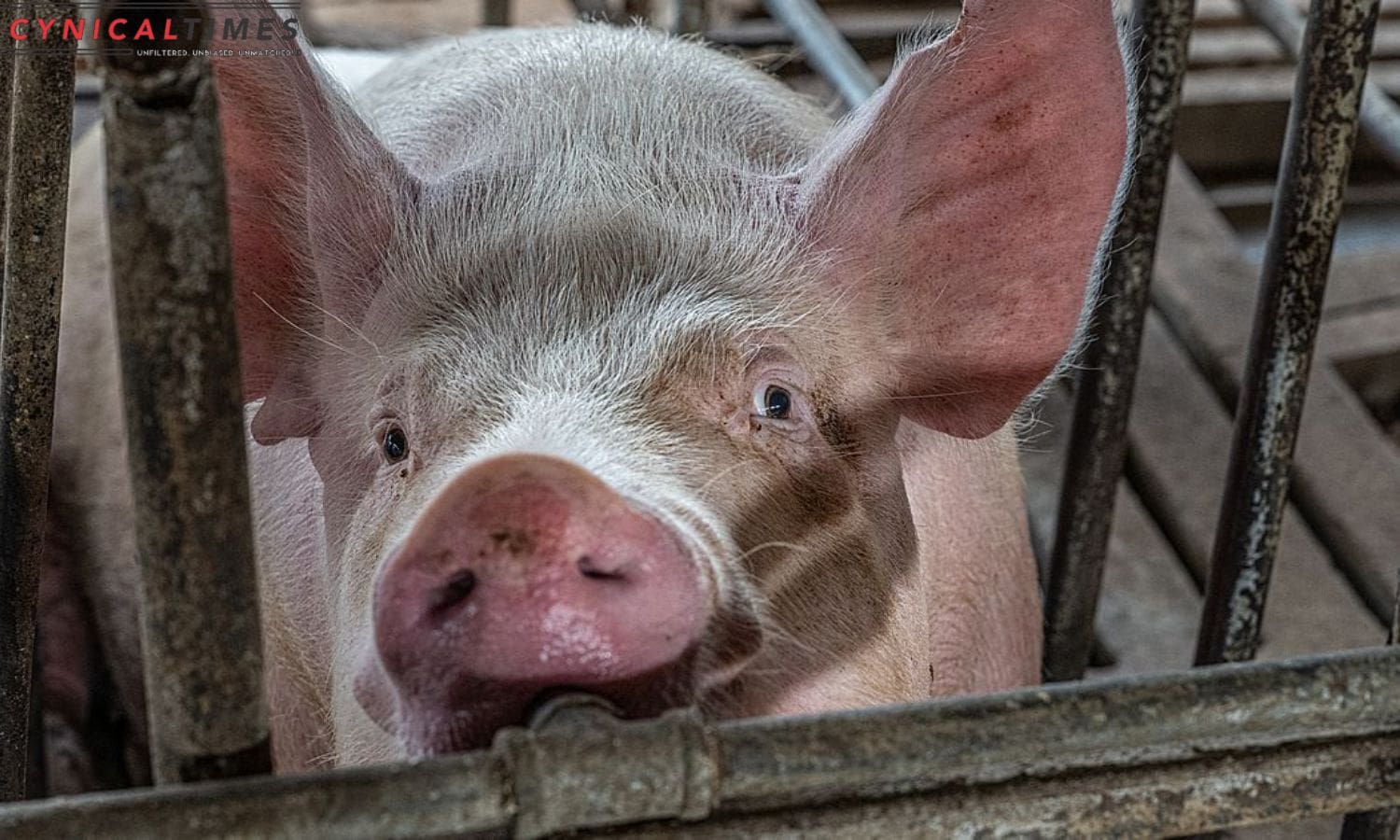Proposition 12 Takes Effect: California’s new animal welfare law, Proposition 12, has officially taken effect, marking a significant milestone in the state’s commitment to improving the well-being of farm animals.
This groundbreaking legislation, which sets rigorous standards for the treatment of animals in the pork industry, has faced opposition and legal battles from industry stakeholders.
However, activists are celebrating this momentous achievement, as it not only sets a precedent for other states but also highlights the importance of public health considerations in the realm of animal welfare.
Key Takeaways Of Proposition 12 Takes Effect
- Proposition 12 was approved by California voters in 2018 and took effect on January 1, 2024.
- The law expands upon the previous animal welfare law, Proposition 2, and sets specific space requirements for animals.
- The pork industry has opposed Proposition 12 and legal battles have reached the Supreme Court, but the court affirmed the state’s authority and the industry must comply with the new regulations.
- Proposition 12’s animal welfare standards include prohibiting gestation crates for mother pigs, ensuring enough space for egg-laying chickens to move, banning the sale of products from animals in inhumane conditions, and enforcing strict labeling requirements to inform consumers about welfare standards.


Also Read : Whale Beach Mystery Solved: Orcas Implicated in Scientific Whodunit
Background and Implementation of Prop 12
Since its approval by California voters in 2018, Proposition 12 has undergone a six-year journey to implementation, finally taking effect on January 1, 2024.
This landmark legislation introduces unprecedented standards for the housing of farm animals, aimed at improving their welfare and ensuring human treatment. Prop 12 expands upon the previous animal welfare law, Proposition 2, which was approved in 2008.
The new law sets specific space requirements for animals, including minimum square footage for egg-laying hens, breeding pigs, and calves raised for veal. It also bans the sale of products from animals that are not raised in compliance with these standards.
The implementation process for Prop 12 involved extensive consultation with stakeholders, including farmers, animal welfare organizations, and industry representatives. This collaborative approach has helped address concerns and ensure a smooth transition to the new regulations.
With the implementation of Proposition 12, California takes a major step forward in promoting animal welfare and setting an example for other states to follow.
Pork Industry Opposition and Legal Battles:
The pork industry has vehemently opposed the provisions of Proposition 12, leading to legal battles that have reached the Supreme Court. These battles stem from the industry’s concerns over the increased costs associated with complying with the new animal welfare standards.
The pork industry argues that Proposition 12 places an undue burden on producers, who will have to invest significant resources into modifying their facilities to provide more space for pigs. Additionally, opponents of the law claim that it will lead to higher meat prices for consumers, as the increased costs for producers are likely to be passed on to the end consumer.
Despite these objections, the Supreme Court has affirmed the state’s authority to limit meat sales and enforce stricter animal welfare standards. As a result, the pork industry will need to adapt to these new regulations or face legal consequences.


Proposition 12’s Animal Welfare Standards
Proposition 12’s animal welfare standards include explicit regulations on the confinement of mother pigs, egg-laying chickens, and veal calves, with a specific focus on prohibiting the use of gestation crates for mother pigs. These standards aim to improve the living conditions and well-being of farm animals, ensuring they are treated with dignity and respect.
Here are some key aspects of Proposition 12’s animal welfare standards:
- Prohibition of gestation crates for mother pigs, providing them with more space to move and express natural behaviors.
- Requirement for egg-laying chickens to have enough space to spread their wings and move freely.
- Ban on the sale of eggs, pork, and veal from animals confined in inhumane conditions.
- Implementation of strict labeling requirements to inform consumers about the welfare standards of the products they purchase.
- Regular inspections and enforcement to ensure compliance with these animal welfare standards.
Through these measures, Proposition 12 aims to create a more humane and ethical agricultural system in California.
Activists’ Celebration and Nationwide Impact
Animal activists across the nation are celebrating the implementation of Proposition 12, the nation’s strongest farm animal protection law, and its significant impact on improving farm animal welfare. The introduction of this law has brought hope and a renewed sense of purpose to activists who have long fought for better treatment of farm animals.
Proposition 12 sets strict standards for the housing and treatment of pigs, calves, and egg-laying hens, ensuring that they have enough space to move around and engage in natural behaviors. This landmark legislation has not only improved the lives of millions of animals in California but has also sparked a nationwide movement for better animal welfare.
Activists in other states are now pushing for similar laws, inspired by the success of Proposition 12. The ripple effect of this law is transforming the way farm animals are treated across the country, giving them a voice and a chance at a better life.
Public Health Considerations and Endorsements:
With its focus on public health risks associated with extreme confinement, Proposition 12 has garnered endorsements from health organizations due to its potential to reduce threats such as salmonella, E. coli, and potential pandemics. The following are five reasons why health organizations support Proposition 12:
- Decreased risk of bacterial contamination: By providing animals with more space and improved living conditions, Proposition 12 aims to reduce the transmission of bacteria like salmonella and E. coli, which can cause severe illness in humans.
- Enhanced food safety: With stricter regulations on the treatment of animals in confinement, Proposition 12 aims to improve the overall safety of animal products, reducing the risk of foodborne illnesses.
- Prevention of potential pandemics: The new law addresses the crowded and unhygienic conditions in which animals are often raised, minimizing the risk of zoonotic diseases that could potentially lead to pandemics.
- Improved antibiotic stewardship: Proposition 12 promotes healthier living conditions for animals, potentially reducing the need for antibiotics in their growth and preventing the development of antibiotic-resistant bacteria.
- Public health protection: By addressing the welfare of animals, Proposition 12 indirectly contributes to safeguarding public health, recognizing the interconnection between animal and human health.


Conclusion Of Proposition 12 Takes Effect
Proposition 12 marks a significant step forward in animal welfare standards in California. Despite opposition from the pork industry and legal battles, the law has been implemented successfully.
Activists are celebrating this milestone, as it not only has a nationwide impact but also raises public health considerations.
With endorsements from various organizations, Proposition 12 sets a precedent for improved animal welfare practices and promotes a healthier society for both humans and animals.
Our Reader’s Queries
When did Prop 12 go into effect?
Starting from January 1, 2020, Prop 12 has implemented minimum usable floorspace requirements for calves and whole veal meat. This regulation will also be applicable for egg-laying hens, shell eggs, and liquid eggs from January 1, 2022. Similarly, breeding pigs and whole pork meat will also be subject to these requirements from January 1, 2022. These measures aim to ensure the welfare of animals and promote ethical practices in the meat and egg industry.
Is Prop 12 being enforced?
Prop 12’s pork component, previously delayed by a Supreme Court case, will finally be enforced on July 1, 2023. However, the six-month window for producers to self-certify may result in noncompliant pork being sold in California. This gap could potentially cause issues for consumers seeking to purchase compliant pork products.
What are the effects of Prop 12?
Starting July 1st, 2023, California’s Proposition 12 will be in full effect. This law mandates that all uncooked pork sold in California must come from sows’ offspring that are raised in pens with a minimum of 24 square feet. This animal welfare law aims to improve the living conditions of pigs and ensure that they are treated humanely. As a result, consumers can feel confident that the pork they purchase in California meets high production standards.
What are the rules for Prop 12 in California?
Proposition 12, the latest animal health and welfare regulation in California, has put an end to the inhumane confinement of breeding pigs. This regulation also covers the welfare of egg-laying hens and veal calves raised in California. Moreover, out-of-state suppliers of eggs and veal to California must also adhere to Prop 12’s standards. This move is a significant step towards ensuring the ethical treatment of animals and promoting their well-being.

